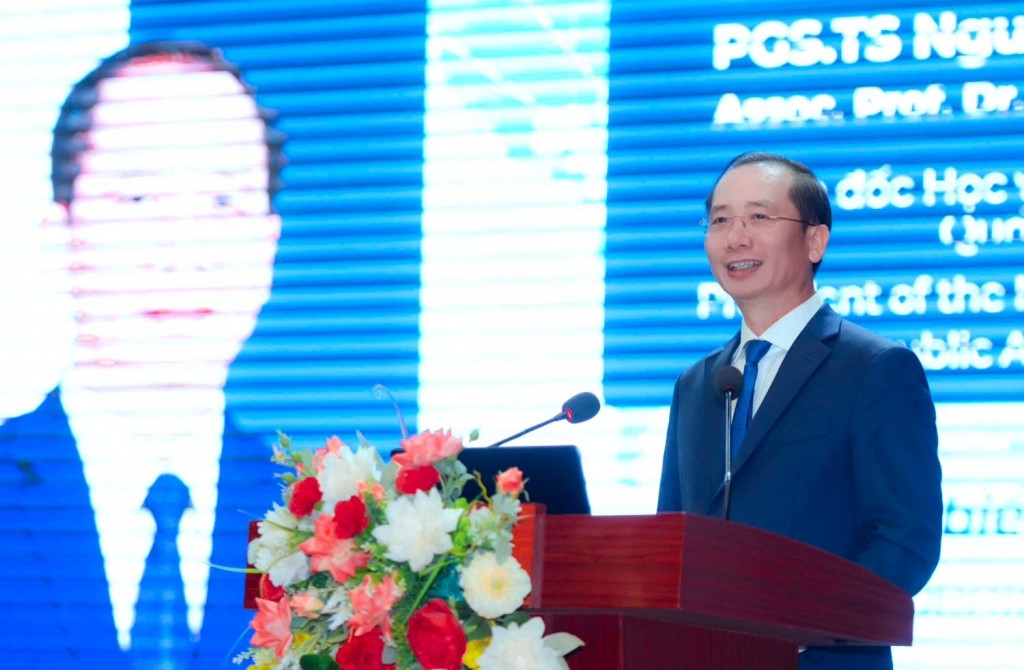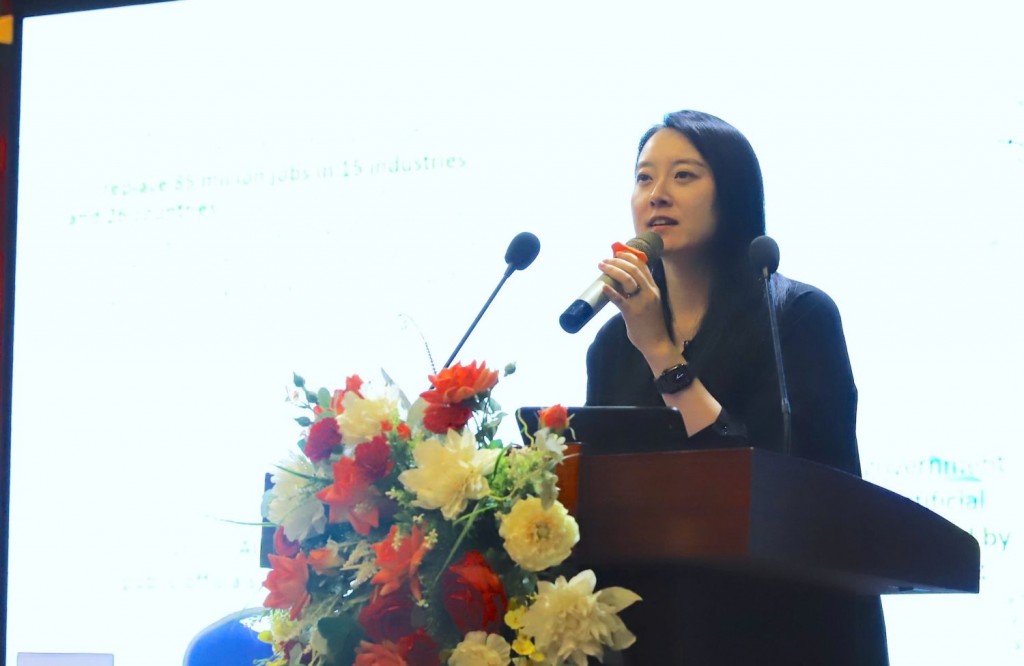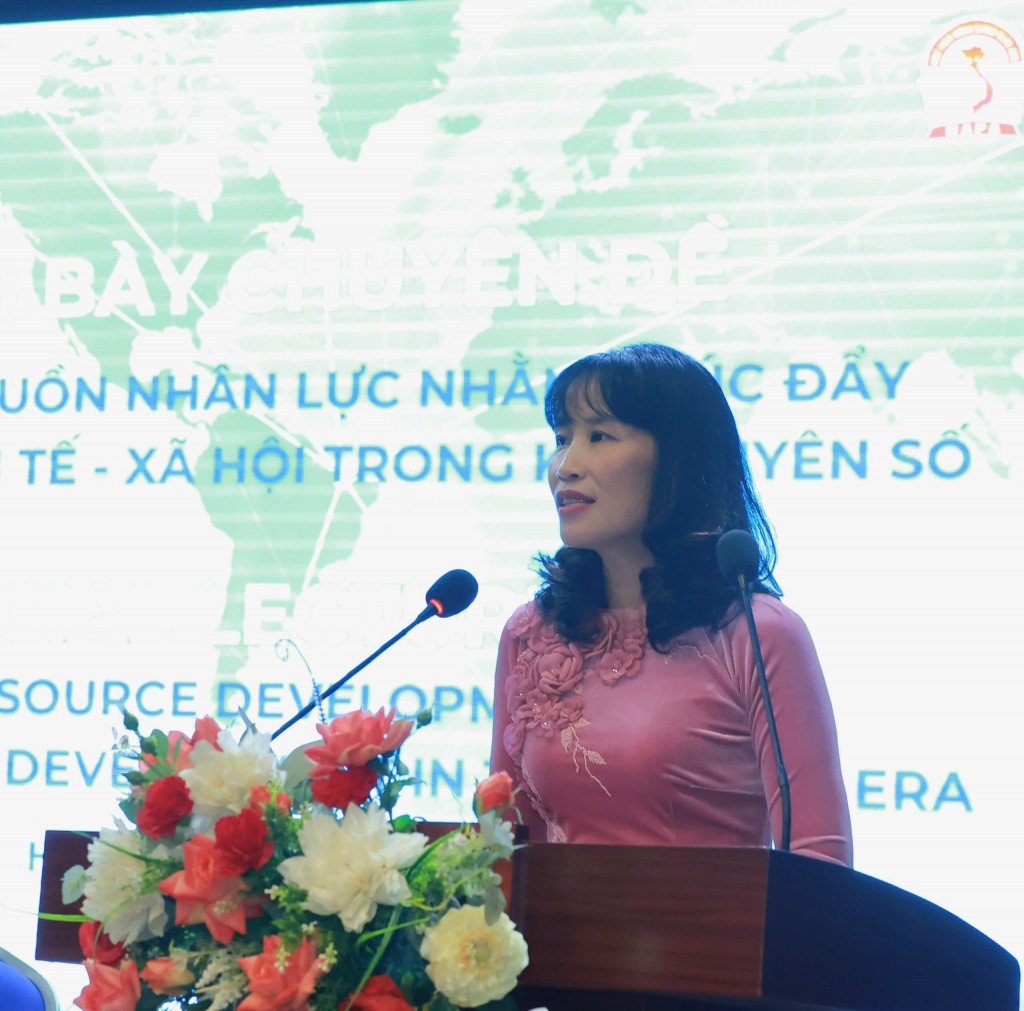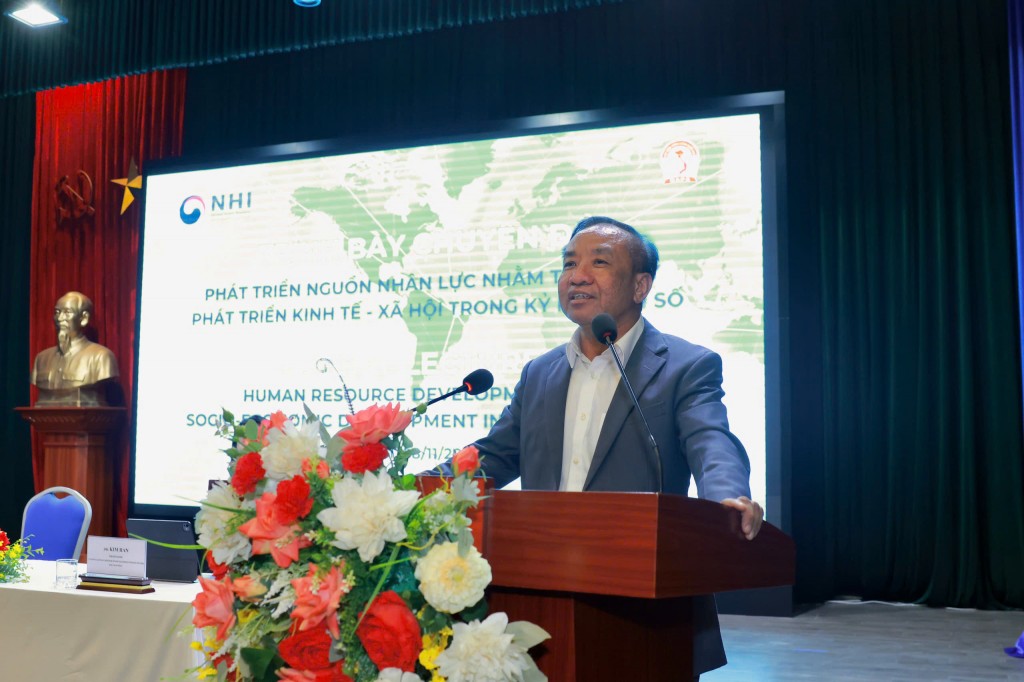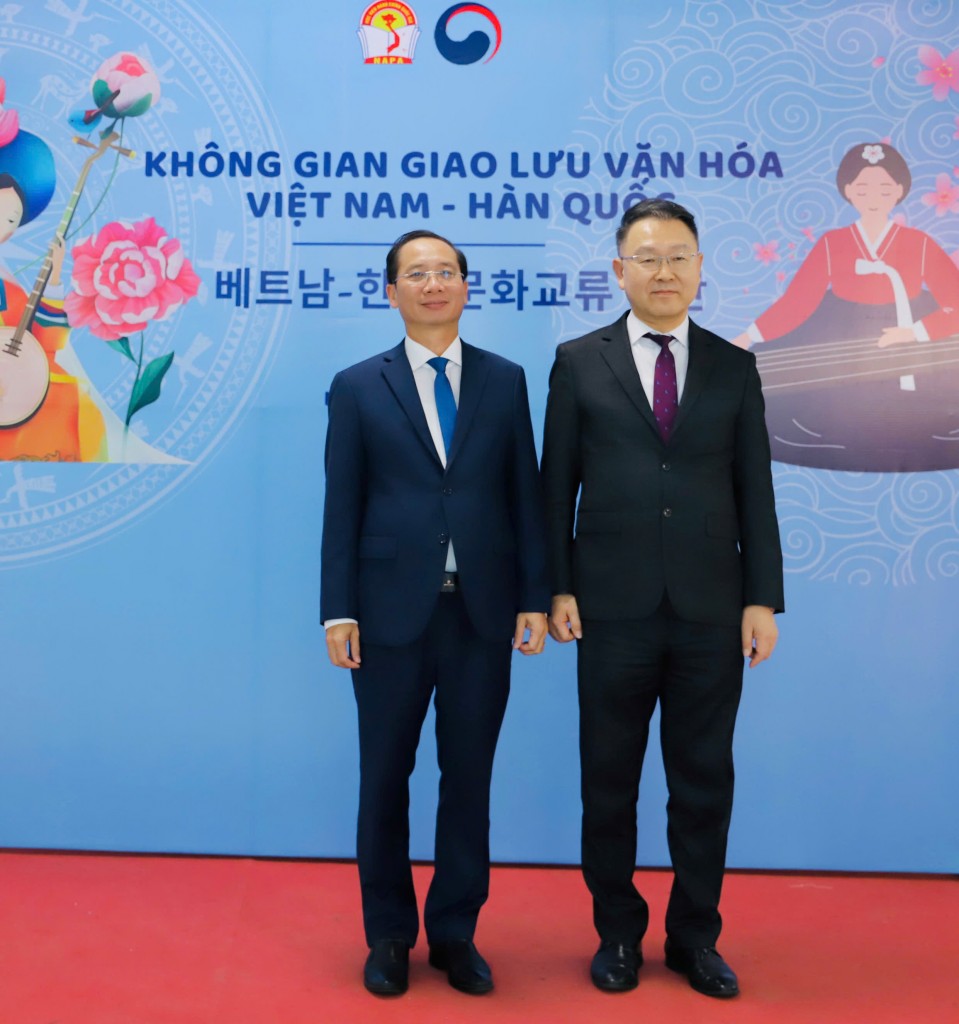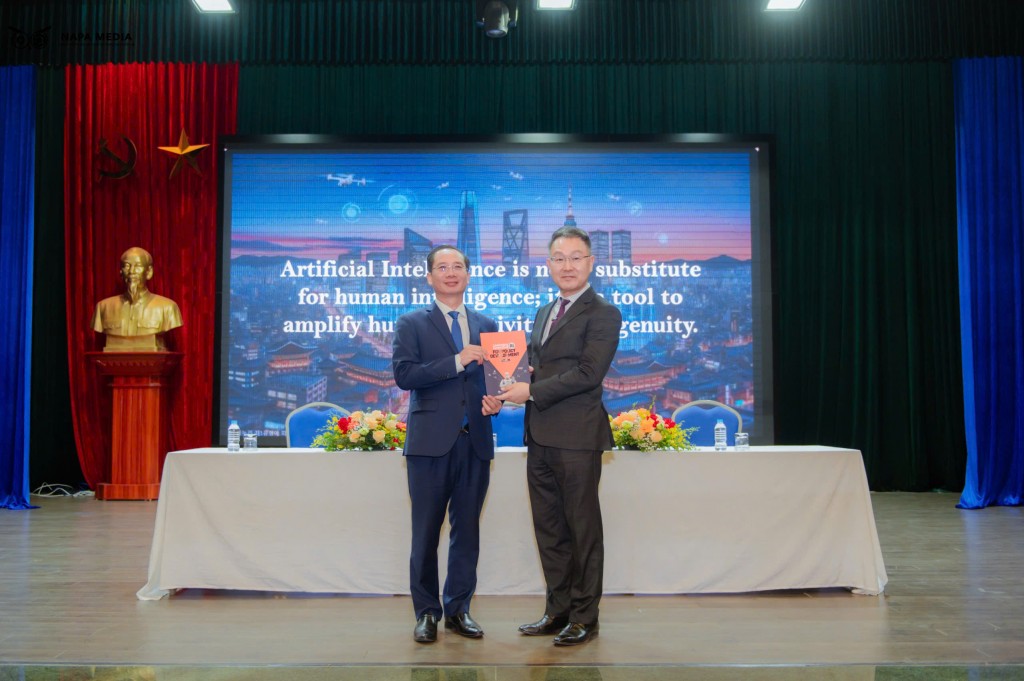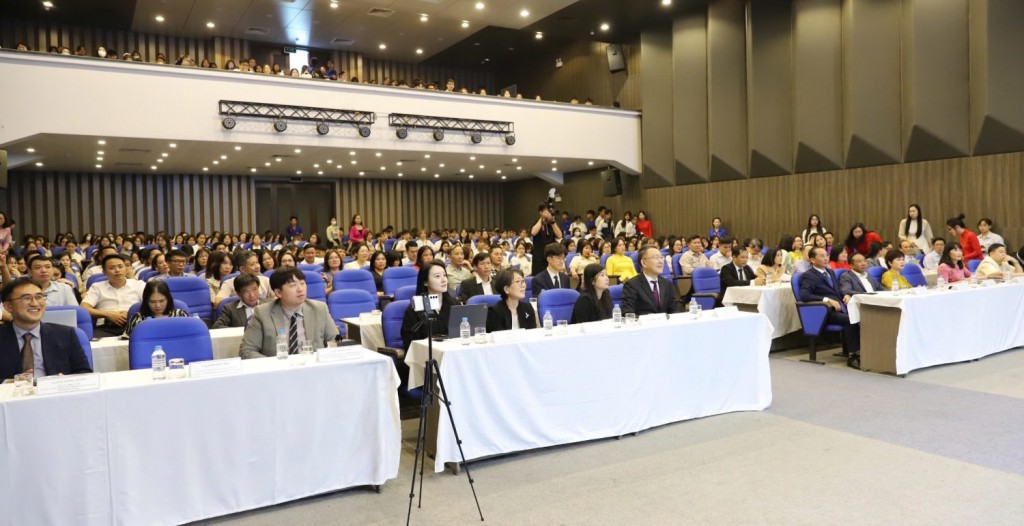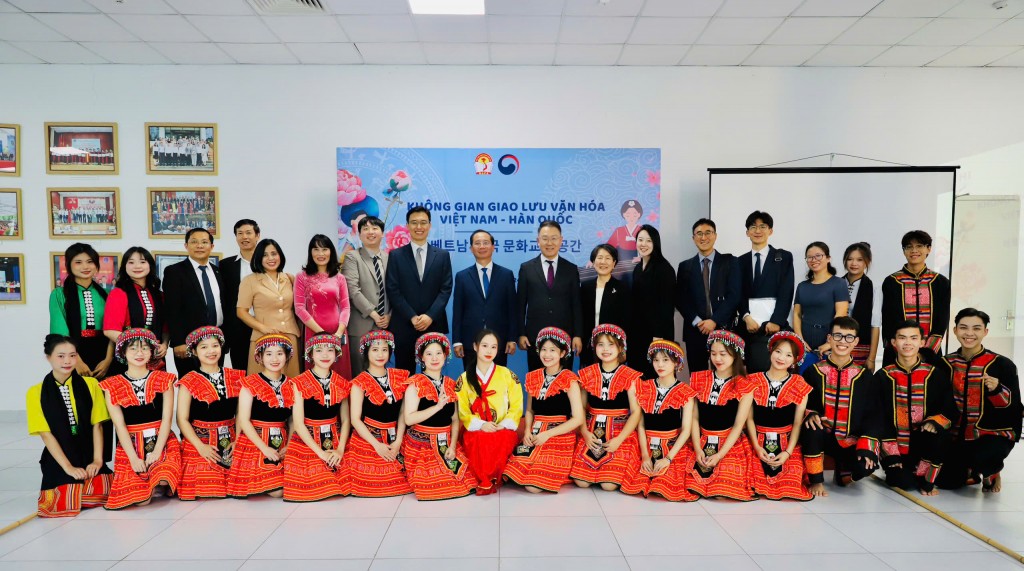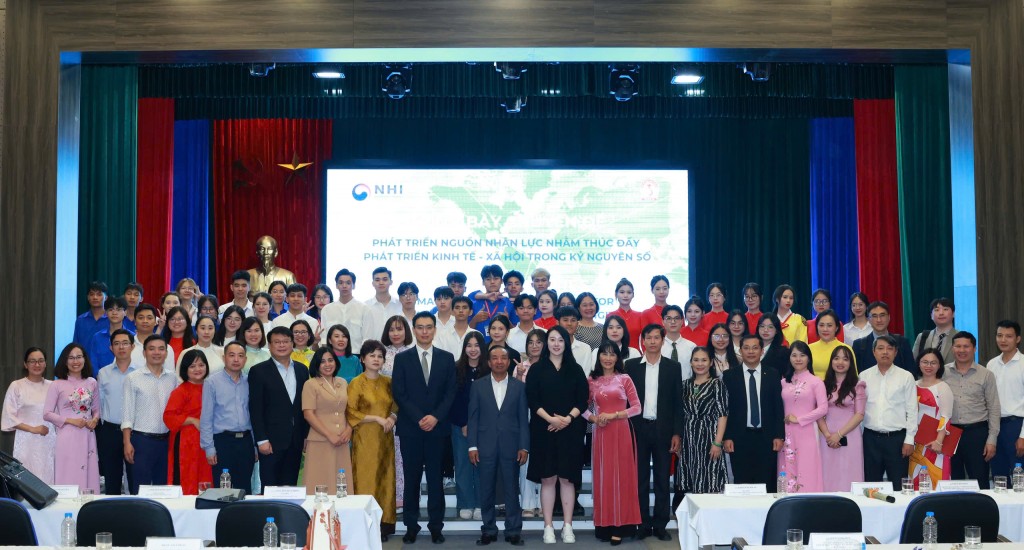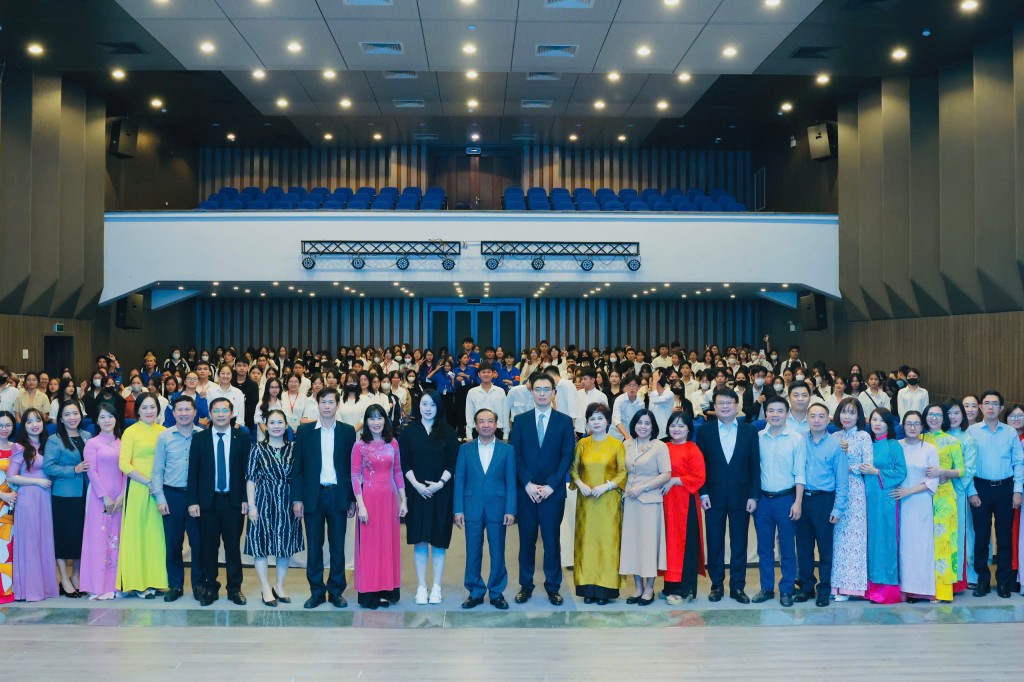On November 8, 2024, in Ha Noi, the National Academy of Public Administration (NAPA) and the Korean National Human Resources Development Institute (NHI) jointly hosted special lectures on “Human Resource Development for Socio-Economic Development in the Digital Era.”
The NHI delegation included Mr. Kim Chae Hwan, President; Ms. Chun Hye Ran, Director General of the Global Education and Cooperation Bureau; Mr. Kim Seong Hoon, Deputy Director of the Global Education and Cooperation Division; Dr. Yun Woo Je, Professor of the NHI; Dr. Kim Ran, Professor of the NHI; Mr. Jung Dong Ha, Program Officer of the Global Education and Cooperation Division; and Mr. Han Sangjun, Secretary of the Office of the NHI President. Representing NAPA were Assoc. Prof. Dr. Nguyen Ba Chien, NAPA President; Dr. Nguyen Dang Que, Vice President; Assoc. Prof. Dr. Luong Thanh Cuong, Vice President, along with faculty, staff, students, and researchers. The special lectures were held both in-person and online to NAPA campuses in Ho Chi Minh City, Quang Nam Province, and Dak Lak Province.
Assoc. Prof. Dr. Nguyen Ba Chien welcomed the experts, scientists, distinguished guests, faculty members, and students for their interest and participation. He highlighted the enduring relationship between Viet Nam and the Republic of Korea, marked by collaborative efforts in professional cooperation, cultural exchange, and the development of human resources.
With the recent signing of a Memorandum of Understanding between NAPA and NHI, the special lectures on “Human Resource Development for Socio-Economic Development in the Digital Era” is a meaningful first step in realizing the MOU’s objectives.
South Korea’s impressive achievements in digital transformation and innovation make it a valuable model, especially in human resource development for the digital era. The special lectures event serves as an opportunity for delegates, scholars, and managers to engage in in-depth discussions on South Korea’s experiences in areas such as “Human Resource Development for Socio-Economic Development in the Digital Era” “LLM-based artificial intelligence (chatGPT) of Application and Ethics in Human Resource Development,” and “Developing Digital and Data Skills Training for Managers,” providing insights that could guide Viet Nam in building a professional, responsible, dynamic, and competent public service.
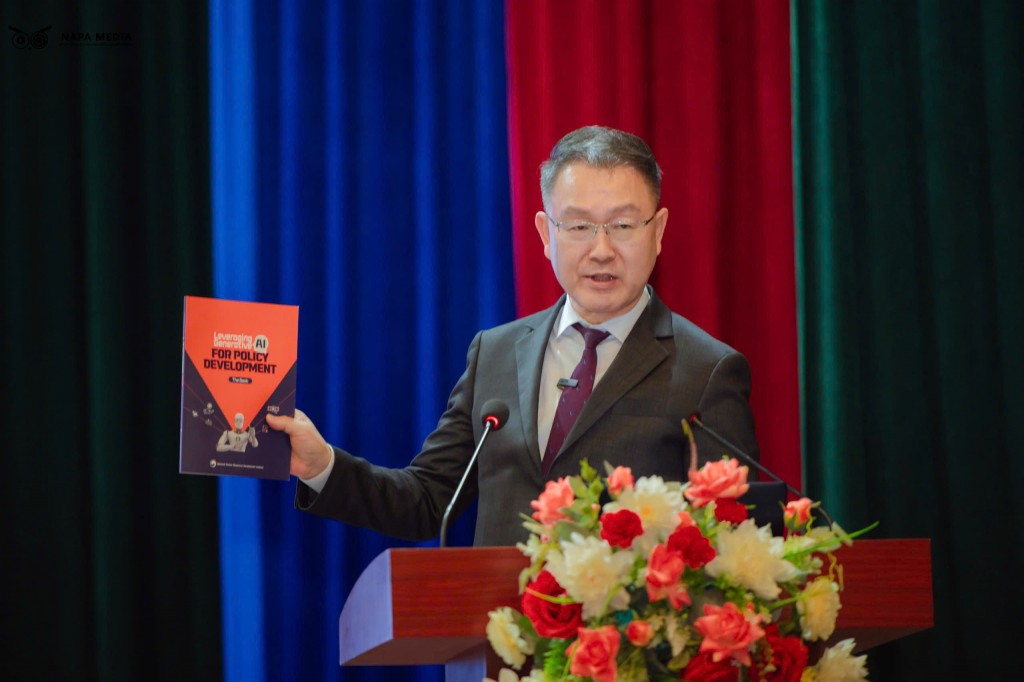
Mr. Kim Chae Hwan, NHI President, sharing insights on South Korea’s socio-economic development policies.
In his special lecture, Mr. Kim Chae Hwan, NHI President, described the early stages of South Korea’s success, the strategic policies driving socio-economic growth, and the NHI’s role in this journey. South Korea’s approach centers on investing heavily in education and training, including the training of public servants and nurturing public sector talent, with the goal of recruiting and utilizing the most outstanding individuals to lead and shape the nation.
Founded in March 1949 under the Korean Ministry of Personnel Management, NHI’s mission is to train public servants and cultivate talent in the public sector equipped to anticipate trends, lead change, and pioneer innovation. Emphasizing Viet Nam’s strengths in its current development phase, Mr. Kim Chae Hwan highlighted the country’s youthful and dynamic working-age population and their eagerness to learn, which forms a crucial resource for Viet Bam’s fast, robust, and sustainable growth in the new era. He also outlined essential knowledge and skills for training in today’s world, including digital literacy, artificial intelligence, big data, adaptability, and innovative thinking.
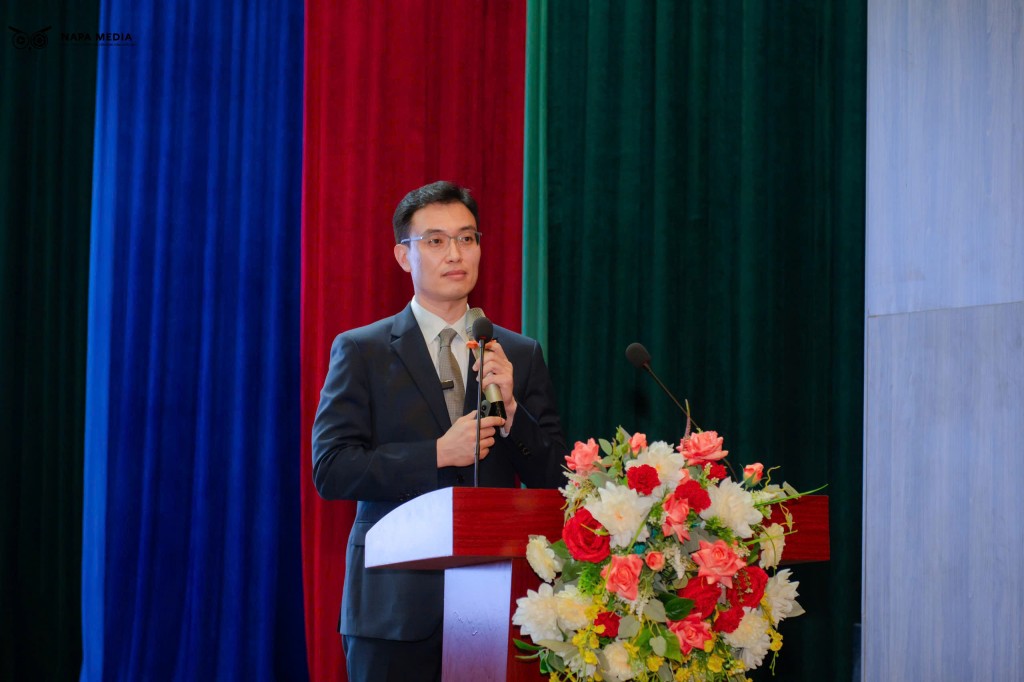
Dr. Yun Woo Je with the presentation titled “LLM-based artificial intelligence (chatGPT) of Application and Ethics in Human Resource Development”.
The presentation titled “LLM-based artificial intelligence (chatGPT) of Application and Ethics in Human Resource Development” was delivered by Dr. Yun Woo Je. He shared methods and essential skills needed to train civil servants to use LLM-based artificial intelligence effectively and safely in their work. According to him, training in appropriate LLM-based AI skills leads to better outcomes with less misinformation while setting policy agendas, policy making, policy implementation, and policy evaluation. Learners are more likely to use LLM model-based AI effectively if they are properly trained in prompting skills. However, despite the effectiveness and usefulness of AI, it is crucial to focus on AI ethics and safety. Dr. Yun Woo Je provided guidelines for AI ethics training at the individual, organizational, and national levels, covering topics like the ethical nature of the AI era, ensuring freedoms and rights, fair access and equal opportunity, ensuring safety and trust, driving digital transformation, and enhancement of humanity.
In her presentation on “Developing Digital and Data Skills Training for Managers”, Dr. Kim Ran illustrated the impact of the Fourth Industrial Revolution on employment. According to the Future of Jobs 2020 Report, AI and its automated applications will replace 85 million jobs in 15 industries in 26 countries by 2025. Both large and small businesses are planning to furiously integrate AI tools to reduce their workforce, signaling the importance of employees upgrading their skills to retain their current positions or find new ones. To enhance national competitiveness and government productivity in the digital domain, it is essential to build a “Digital Platform Government” and improve the digital skills of all civil servants.
Dr. Kim Ran suggested several key policy education enhancements to respond to a rapidly changing environment: (1) Strengthening Digital competencies in the Executive Branch: Promoting the enhancement of digital competencies among executive branch personnel to secure national growth potential through digital technology and implement a high-level digital platform government; (2) Job-Specific Customized Training: Providing training on digital technology trends, policies, and case studies required for each job level, as well as specialized technical training tailored to each professional field; (3) Mandatory Digital Competency Training: Conducting mandatory digital competency training for public officials, with effective planning and operation considering job levels, job types, and training stages.
Assoc. Prof. Dr. Hoang Mai, Dean of the Faculty of Human Resource Management, noted that the presentations by Korean experts provided valuable insights on human resource development in the digital era. These insights highlighted the importance of digital skill development, especially as AI and digital technologies are rapidly transforming workforce growth. For Viet Nam, this underscores the need to establish specialized training programs for civil servants in areas such as artificial intelligence, data analytics, and digital management skills.
Assoc. Prof. Dr. Hoang Mai identified several policy implications:
First, mandatory training in digital skills for civil servants is essential to ensure all officials have a foundational understanding of digital technology, particularly in emerging areas such as AI, data analytics, and cybersecurity.
Second, enhancing soft skills training for civil servants, including critical thinking, problem-solving, and teamwork skills, is crucial in a digital environment.
Third, promoting upskilling and reskilling programs to improve adaptability and seize opportunities as technology advances.
Fourth, training in ethics and responsible AI use is necessary to raise awareness among civil servants, helping them understand and adhere to personal responsibility when applying such technologies, thus ensuring decision-making is guided by human values and ethical and social responsibility.
Fifth, developing digital government and Digital Twins can boost public management efficiency and provide citizens with more convenient public services.
Sixth, increasing the effectiveness of public-private partnerships in training and technology development is also essential.
Following the discussion, questions about the role of AI in workforce training and how to design an effective digital workforce training program were addressed, with direct engagement with the experts.
In his closing remarks, Dr. Nguyen Dang Que expressed gratitude and well wishes to the distinguished delegates and experts from the Republic of Korea on behalf of NAPA. He emphasized that the expert discussions and insights provided valuable data for NAPA to continue innovating in training, capacity-building, and academic research in human resource management. These contributions will aid in refining policies for workforce development in Viet Nam’s public sector.
Some photos at the event:


